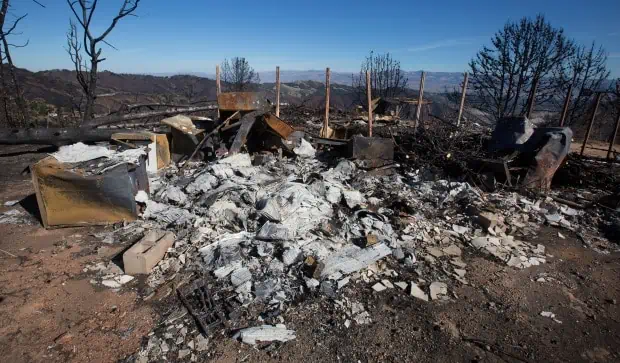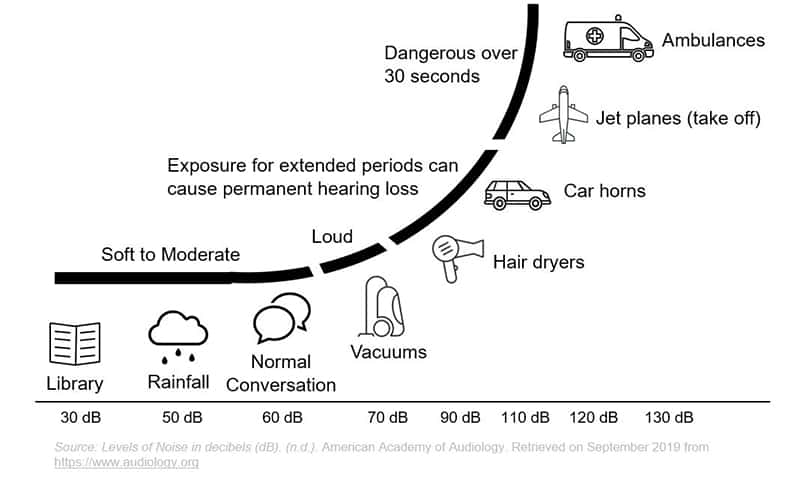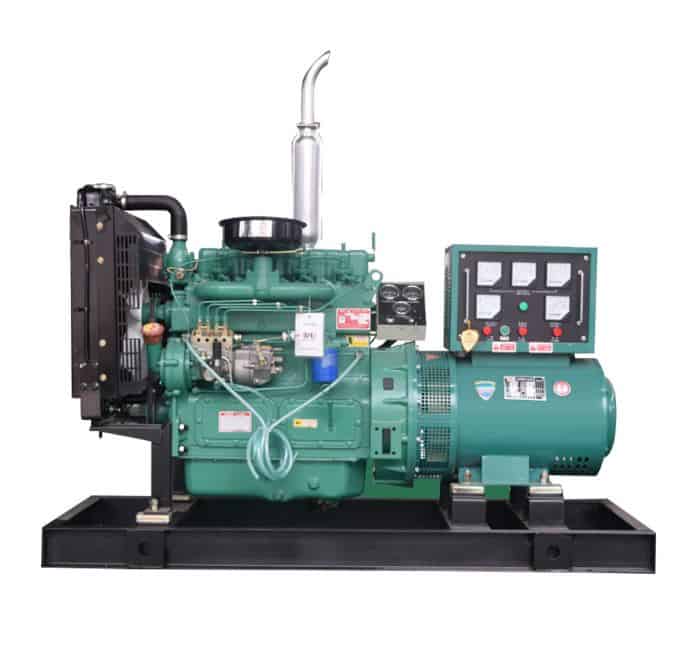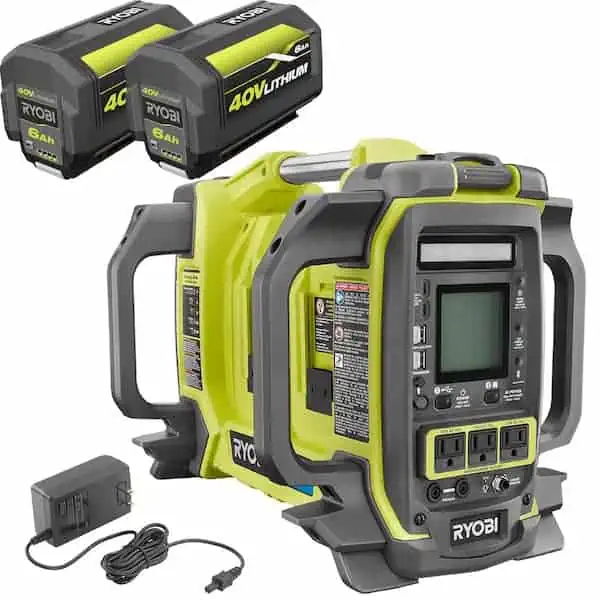Portable Generators: A Look At Their Environmental Toll
Its no secret that portable generators are a popular solution for providing power at your home or while camping; however have you ever stopped to think about their contributions towards environmental degradation? This article will examine how these convenient but often overlooked devices impact our surroundings and consider possible solutions.
Portable generators work by consuming fossil fuels like gasoline, diesel or propane which release greenhouse gases including carbon dioxide and methane into our atmosphere; contributing factors towards global warming.
In addition they also have the ability to release air pollutants like particulate matter and ozone that can prove harmful to human health if inhaled. Therefore its imperative that we keep in mind these potential environmental costs while operating such generators.
What Are Portable Generators And How Do They Work?
Portable generators prove invaluable for numerous people residing in remote locations or during times of crisis as they serve as an essential source of power. They offer a simple means of producing electricity and operating appliances lights, and other devices.
But what exactly are portable generators?
How do they function?
To put it plainly; portable generators consist of small engines that use gasoline, diesel fuel or propane as their primary source of energy. Contained within the generator is an alternator that utilizes magnets and coils of wire to convert mechanical energy from the engine into electrical energy which can be stored in batteries or directed towards an outlet that powers various appliances and devices.
The most significant advantage offered by portable generators is their ability to supply power sources when traditional ones such as electric grids fail. As such they're extensively used during natural disasters or remote areas where electricity access may not exist.
However; before relying on these machines regularly its crucially important to consider their environmental impact. Join me as we delve into the consequences of using fossil fuels and how they impact our environment.
Image Credit: harborfreight
The Impact Of Fossil Fuel Use On The Environment
The adverse impact of burning fossil fuels on our planet is something we’re all familiar with, but not many people fully appreciate its ramifications.
From air pollution to ocean acidification such effects collectively take a severe toll on our environment.
With that in mind lets delve into how using portable generators powered by fossil fuels exacerbates this issue.
As more individuals worldwide rely on such machines for their power needs emissions from these sources steadily become more worrying.
Burning fossil fuels leads to the release of carbon dioxide into the atmosphere – a gas which traps heat within earths vicinity causing temperatures worldwide to increase at an alarming rate.
Additionally portable generators also emit various other pollutants like ozone and particulate matter – compounds known for having serious health consequences when inhaled .
The negative effects created by using portable generators operated via fossil fuels do not cease here! It is worth noting fuel used for these machines usually comes from oil or gas drilling operations which may contaminate soil and water systems apart from causing disruption to local habitats of flora and fauna.
With every switch on of a new generator comes the potential for further damage to an ecosystem already hanging in the balance.
The detrimental impact of portable generators powered by fossil fuels has undoubtedly left its mark on the environment.
Examining how pollution from ozone and particulate matter adds to this environmental crisis is another crucial step towards finding solutions.
Ozone And Particulate Matter Pollution
The negative impact of portable generators on the environment is severe and shouldn’t be taken lightly.
Air pollution resulting from generator use is a major concern with two types of pollutants in focus: ozone and particulate matter emissions.
Ozone formation occurs when nitrogen oxide reacts with volatile organic compounds found in generator fuel under sunlight exposure. The inhalation of high levels of ozone has been linked to serious respiratory problems like chest pain asthma attacks and coughing while particulate matter released into the air through burning fuels poses risks such as increased possibility of heart attack or stroke. Moreover portable generators contribute to climate change by emitting greenhouse gases such as carbon dioxide while refuelling often causes fuel spills that can contaminate land or nearby water sources – further harming our environments necessary for food production and leisure activities. The adverse ramifications of portable generators on our environment and fauna cannot be denied.
We hold the responsibility of diminishing their adverse consequences through responsible disposal methods and choosing renewable energy alternatives when viable.
If we aspire towards a sustainable future it is vital that we tackle head on the issue of pollution caused by these machines without delay. Furthermore lets study how using portable generators poses a threat to human health so as to proactively protect ourselves from danger down the line.

Image Credit: eastbaytimes
Health Risks Associated With Portable Generators
Having spent a significant amount of time around portable generators myself I can confirm just how dangerous they can be. In addition to their contribution to environmental degradation these machines are known for their negative impact on human health. From air quality concerns to noise pollution issues its important that we understand the potential consequences of using them.
To provide further insight into this issue I’d like us to explore some common health risks associated with portable generators. Outlined within the following table are details on those specific hazards:
| Health Risk | Short-Term Effects | Long-Term Effects |
|---|---|---|
| Air Quality Issues | Respiratory irritation Eye, nose and throat irritation Headaches Fatigue | Chronic respiratory diseases such as asthma and bronchitis Heart diseases Lung cancer Premature death in people with existing heart or respiratory conditions |
| Noise Pollution | Hearing loss High blood pressure Stress and fatigue Sleep disturbances | Stress-related mental health problems such as depression and anxiety Cardiovascular diseases such as stroke and heart attack |
While portable generators can undoubtedly be a lifesaver during power outages its crucial that we take the time to consider the potential risks they pose to our wellbeing. The utilization of portable generators demands careful consideration due to its potentially harmful nature. Acquiring knowledge about its associated risks is a critical aspect in ensuring safe operation and guarding against negative consequences. Equipped with this valuable insight let us now turn our attention towards resolving the nuisance of noise pollution emanating from these devices.

Image Credit: nfpa
Noise Pollution From Portable Generators
Portable generators are a popular choice for those who require an immediate source of power in areas where its unavailable. However while their benefits are undeniable theres a significant environmental cost associated with their use that many users tend to overlook- Noise pollution. The harsh noise emission from portable generators could lead to hearing loss over time; apart from causing stress and physical fatigue due to its irritating nature.
It also disrupts productivity levels in confined spaces like bedrooms or offices through interference with our ability to concentrate – something that should not be taken lightly.
Thankfully reducing such noise pollution is possible by investing in low decibel level generators or using acoustic enclosures during usage – measures that make a considerable difference and help us avoid long term harm without compromising the convenience offered by portable generators. Portable generators have become indispensable for many of us – whether we need them due to power cuts or for outdoor activities.
However like all human creations that gain widespread usage these too have some downsides that deserve attention; mainly their impact on the environment and potential health hazards under certain conditions. Thankfully there are some measures we can take to ensure that our use of these machines doesn’t come at too high a cost. For instance choosing newer models with lower emissions or those designed for higher fuel efficiency among other features is an excellent first step in lessening their adverse effects.
Other ways include regular maintenance and adhering strictly to guidelines about usage when dealing with portable generators. These sensible practices ensure that any negative outcomes are minimized while still enjoying the benefits offered by such machines.
In light of growing concerns around environmental degradation due to varying human activities including technology usage such as portable generators; being aware of regulatory changes affecting this sector will help us stay ahead of issues relating to safety standards and minimizing our impact on natures delicate balance.

Image Credit: cummins
Portable Generator Emissions Regulations
Did you know that using a portable generator can have severe environmental consequences? The manufacturing process and burning of fossil fuels are two significant contributors to pollution associated with these machines.
Thankfully the United States Environmental Protection Agency (EPA) has established regulations concerning emissions from portable generators. Manufacturers are required to produce models with lower emissions and those who fail will face stiff penalties. These regulations apply even to existing models creating an environment where all companies must step up their efforts towards sustainability goals regardless of the products age.
States often maintain their own emission standards for different types and models of portable generators that vary widely across geographical regions. Many now meet best practices by producing more efficient machines reducing harm caused by environmental pollution.
The EPA is committed towards ensuring clean energy is pivotal in our daily lives through its efforts improving emission standards alongside overall safety across all aspects of our life today.
Alternatives To Fossil Fuel Portable Generators
Now, onto exploring alternative power options after discussing regulations governing emissions for portable generators.
As a consumer, you have choices beyond fossil fuels with the increasing use of solar- or wind-powered portable generators producing minimal environmental impact through clean energy generation.
The conversion process for solar panels involves photovoltaic cells tapping into sunlight to create electrical power: a dependable system requiring low maintenance yet sufficient exposure to sunlight.
Wind-powered systems generate electric power using kinetic energy derived from blowing air designed for use in both residential plus commercial applications—although relying heavily on wind speeds; locations experiencing slow winds may not benefit from their use as much as higher-wind locations can expect more reliable results.
From reducing pollution levels to producing trustworthy energies whenever requested, both solar- or wind-powered portable generators provide plausible solutions for your needs.
Plus, these options provide additional savings over time because they avoid generating pollutants.
Consumers seeking to decrease their environmental impact while maintaining convenience and comfort have various promising options to explore.

Image Credit: alibaba
Solar And Wind-Powered Portable Generators
As renewable energy gains momentum, solar and wind powered portable generators are garnering interest for various uses. With promises of better energy efficiency and environmental benefits over gas or diesel generators its critical to weigh both technologys pros and cons before making any switch. Lets delve deeper into the particulars through this comparison table:
| Solar Generators | Wind Generators |
|---|---|
| Virtually no noise pollution | Affordable installation costs |
| Necessitates no fuels | Consistent power supply when the wind blows |
| Expensive initial investment required | May generate noise during usage |
Solar generators have many advantages; they run practically soundless require minimal maintenance use no fuel – but come at an elevated price point upfront. On the flip side while wind generators might seem less expensive initially they can be noisy while running and demand reliable winds to perform at their full potential. Making an informed decision on whether solar or wind-generated power is more suited for your mobile energy needs necessitates considering numerous factors such as budget constraints and planned usage scenarios. Although both alternatives offer distinct strengths deserving attention from shoppers who seek sustainable solutions for generating energy on-the-go.
Nonetheless, individuals who remain interested in additional eco-friendly possibilities may wish to investigate battery-operated mobile generators as well.

Image Credit: usatoday
Battery-Operated Portable Generators
Are you tired of loud and cumbersome gas powered generators? A battery operated portable generator may be just what you need! These types of generators offer several benefits over traditional ones. For one they’re much quieter and lighter making them more convenient for indoor or outdoor use. An added bonus is that battery operated portable generators don’t produce hazardous fumes like traditional ones do.
This makes them safer overall while also reducing their environmental impact since they don’t rely on fossil fuels for energy production.
The only downside is that their power output is limited meaning they’ll need to be recharged after several hours of use.
However this limit may not matter if you’re using the generator solely for emergencies or short term events. Overall a budget conscious consumer seeking an eco friendly source of emergency power will find peace of mind with a battery operated portable generator.
As long as used batteries are disposed of properly these types of generators offer a promising alternative to traditional gasoline powered generators. As we move forward, it is crucial that we prioritize the reduction of portable generator’s environmental impact without compromising its convenience.

Image Credit: homedepot
Reducing The Environmental Impact Of Portable Generators
Undoubtedly battery-operated portable generators have significantly reduced their environmental impact throughout the years; however, there are still ways in which we can reduce their toll further on our planet. In this segment, I’ll cover various initiatives that we can undertake to optimize the ecological benefits of our generators.
Firstly it’s important always to keep your generator well-maintained by regularly checking its components for wear-and-tear signs so you can identify faulty parts instantly and replace them promptly beforehand thereby keeping emissions levels at a minimum while ensuring optimal efficiency performance levels on your unit continually.
Moreover critically ensure proper ventilation when using your generator as this will reduce exposure levels nearby or prevent toxic fumes from escaping into the atmosphere unknowingly.
Last but not least disposing off old or broken down generator units appropriately by sending them over towards approved hazardous waste recycling centers provides safety measures from harmful pollutants being exposed in soils or waterways due inadequate disposal methods. It falls upon each one of us as consumers and users of portable generators to take steps towards minimizing their ecological footprint. The good news is that adopting simple yet effective strategies can help us enjoy their numerous benefits while keeping any negative impacts at bay.

Image Credit: homedepot
Frequently Asked Questions
How Much Noise Do Portable Generators Typically Produce?
Portable generators offer unparalleled convenience when it comes to powering electricity in remote areas or during sudden outages caused by natural disasters such as hurricanes or tornadoes.
However their high decibel output can also pose potential issues when it comes to disturbing nearby communities. The average frequency range for most portable generators is between 65dB and 110dB which is comparable in volume to the sound produced by chainsaws.
As such it might be worth considering purchasing models with built in mufflers or sound absorbing paddings if silence is golden where you intend using your generator.
What Is The Cost Difference Between Traditional And Alternative Portable Generators?
Bridging the gap between energy efficiency and affordability is key when choosing a reliable portable generator that doesn’t take a toll on your finances or the environment.
And while conventional options do tend to be more expensive than renewable sources like solar or wind powered systems initially…heres where things get interesting! Over time the benefits of going green really come through! With lower maintenance requirements and no emissions output from renewable systems – you save big bucks on fuel while also doing your part for cleaner air quality! In addition you could qualify for some sweet tax incentives that help offset any extra costs at the start making alternative options even more appealing!
Are There Any Health Risks Associated With Battery-Operated Portable Generators?
The ease of operation offered by portable generators powered by batteries could make one wonder if there are any downsides worth considering- well -there are potential health implications to contend with! The batteries that power these handy gadgets contain harmful elements– cadmium,nickel,and lead; all which could be released into the surrounding areas through heating or burning while in use.How much more,the vapours emitted by these batteries has been known to trigger respiratory troubles and pounding headaches.It therefore goes without saying that utmost care should be taken when handling them including wearing protective gear.The best move would be considering all pros ans cons prior to embracing this technology.
Are There Any Restrictions On The Use Of Portable Generators In Certain Areas?
Have you ever tried using a portable generator and encountered obstacles due to certain laws?
Its because various locations have different regulatory measures set up around these devices’ utilization. Its crucial to understand these limitations beforehand because they vary from one area to another; some cities or states mandate the acquisition of permits before operating them—others prohibit their use entirely due to safety concerns such as noise pollution and risk of fires.
Therefore it is necessary always to check with your local authorities first before bringing a generator into an area.
How Much Fuel Do Portable Generators Typically Consume?
In situations where mains power isn’t available – from camping trips to construction sites – portable generators prove themselves invaluable for keeping lights on and devices charged up.
However fuel consumption rates vary depending on both the size of the generator in question and number/types of electrical items being used concurrently. Putting several machines into action at once will require more energy and therefore more petrol/gasoline/diesel etc.
whereas smaller units are naturally more frugal when it comes to fuel use. If you’re working with a 1000 watt generator then expect it to last anywhere between four and six hours per gallon tank when used alone; bear in mind that powering larger appliances will consume more fuel.
Conclusion
The convenience offered by portable generators during emergencies is undeniable but at what cost? We must recognize that these machines come at significant environmental costs.
They can produce deafening noise pollution while guzzling down large quantities of fuel which could turn hazardous if mishandled by inexperienced users. On top of this reality is the fact that some places have regulations preventing their use entirely which means you’ll never get full value out of them regardless of how much money you spend on them- thus highlighting why researching pros & cons becomes critical if looking for an informed choice between security against safety concerns vs green issues.






